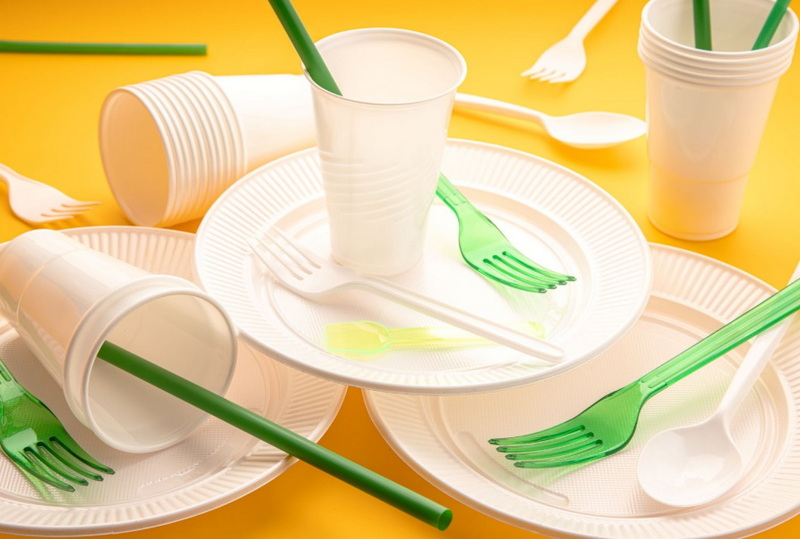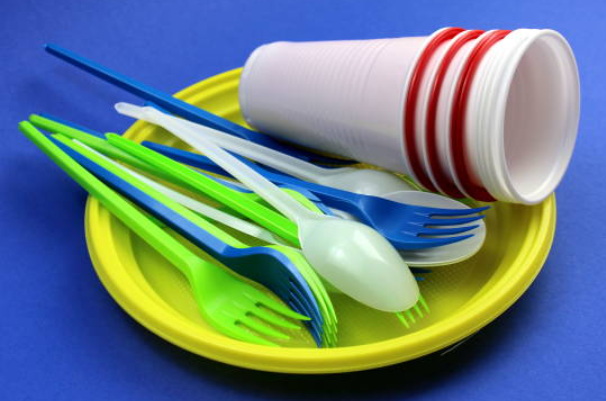
Content Menu
● Introduction to Disposable Plastic Utensils
>> Types of Plastics Used
● Can Disposable Plastic Spoons and Forks Be Recycled?
>> Challenges in Recycling
>> Specialized Recycling Programs
● Alternatives to Disposable Plastic Utensils
>> Eco-Friendly Options
>> Innovative Recycling Methods
● Reducing Waste and Promoting Sustainability
>> Strategies for Reduction
● Environmental Impact of Plastic Pollution
>> Impact on Biodiversity
>> Human Health Impacts
● Innovations in Plastic Recycling
>> Chemical Recycling
>> Bioplastics
>> Ecobricks
● Conclusion
● FAQ
>> 1. What types of plastic are disposable utensils made from?
>> 2. Can I reuse disposable plastic utensils?
>> 3. Are there any innovative ways to recycle disposable plastic utensils?
>> 4. What are some eco-friendly alternatives to disposable plastic utensils?
>> 5. How can I contribute to reducing plastic waste from disposable utensils?
● Citations:
The question of whether disposable plastic spoons and forks can be recycled is a pressing concern in today's world, where environmental sustainability is increasingly important. Disposable plastic utensils, such as spoons and forks, are widely used due to their convenience but contribute significantly to plastic waste. In this article, we will explore the recyclability of these items, discuss alternatives, and provide insights into how to manage them sustainably.

Introduction to Disposable Plastic Utensils
Disposable plastic utensils, including spoons and forks, are made from various types of plastics, such as polypropylene (PP) and polystyrene (PS). These materials are chosen for their lightweight and cost-effective properties but are not easily recyclable in most standard recycling programs.
Types of Plastics Used
- Polypropylene (PP): Commonly used for utensils and some food containers. It can be recycled in some specialized facilities but is not widely accepted in curbside recycling programs. Polypropylene is considered a safer plastic choice than many others, being petroleum-derived but less toxic[1].
- Polystyrene (PS): Often used for plates and cups. It is not widely accepted in curbside recycling due to its low density and difficulty in processing.
Can Disposable Plastic Spoons and Forks Be Recycled?
Technically, some types of plastic utensils can be recycled if they are made from recyclable materials and if there are facilities in your area that accept them. However, most curbside recycling programs do not accept disposable plastic utensils due to their small size and difficulty in sorting.
Challenges in Recycling
1. Sorting and Identification: Disposable plastic spoons and forks are too small to be efficiently sorted by standard recycling machinery. Their inconsistent shapes also complicate the sorting process[1].
2. Material Type: Unless marked with specific resin codes (e.g., 5-PP), it's hard to determine if they can be recycled locally. Plastic utensils are made with different plastic types, including #1, #5, #6, or bioplastics, which are not universally recyclable[1].
3. Contamination: Utensils often have food residue, which contaminates the recycling process.
Specialized Recycling Programs
Some companies offer mail-in recycling programs for specific types of plastics. For example, Preserve.eco has a program for recycling #5 PP plastics, which are sometimes used in disposable utensils. These programs provide a way to recycle materials that would otherwise be discarded.
Alternatives to Disposable Plastic Utensils
Given the challenges in recycling disposable plastic spoons and forks, exploring sustainable alternatives is crucial.
Eco-Friendly Options
1. Reusable Utensils: Made from stainless steel, bamboo, or durable plastics, these can be washed and reused multiple times. Reusable bamboo utensils are particularly popular due to bamboo's fast growth rate and biodegradability[2][7].
2. Compostable Utensils: Made from materials like cornstarch or sugarcane, these can biodegrade under the right conditions. However, they may not be suitable for very hot foods or liquids[2].
3. Paper Utensils: Another option is paper cutlery, which can be composted or recycled. It is a good alternative for those seeking compostable and recyclable options[7].
Innovative Recycling Methods
Some individuals have experimented with recycling plastic utensils into 3D printing filament, offering a creative way to repurpose waste. This method involves collecting and processing plastic waste into a usable material for printing.

Reducing Waste and Promoting Sustainability
Reducing the use of disposable plastic utensils is key to minimizing environmental impact.
Strategies for Reduction
1. Use Reusable Utensils: Carry reusable spoons and forks when eating out or ordering takeout. This simple action can significantly reduce the demand for disposable plastics.
2. Support Sustainable Policies: Encourage local businesses and governments to adopt policies banning or limiting disposable plastics. Many cities have successfully implemented such policies, leading to a decrease in plastic waste.
3. Educate Others: Share information about the environmental impact of disposable plastics and promote sustainable alternatives. Awareness is crucial in driving behavioral change.
Environmental Impact of Plastic Pollution
Plastic pollution is a global issue affecting ecosystems and biodiversity. It poses significant threats to marine life, causing ingestion, suffocation, and entanglement[8]. Moreover, plastic pollution contributes to greenhouse gas emissions throughout its lifecycle, from production to disposal[8].
Impact on Biodiversity
Plastic pollution affects not only marine environments but also terrestrial and freshwater ecosystems. It can lead to the release of microplastics, which are found in every ecosystem and can harm wildlife[3][8].
Human Health Impacts
Microplastics have been found in human tissues, raising concerns about potential health impacts. While more research is needed, there are indications that microplastics could contribute to developmental, reproductive, and immune disorders[8].
Innovations in Plastic Recycling
Recent innovations in plastic recycling offer promising solutions to the plastic waste crisis.
Chemical Recycling
Chemical recycling involves breaking down plastics into their molecular components, allowing for the recycling of mixed and contaminated plastics. This method has the potential to significantly increase the types of plastics that can be recycled[4].
Bioplastics
Bioplastics, made from renewable sources like cornstarch or sugarcane, offer a sustainable alternative to traditional plastics. They are biodegradable and can be composted, reducing plastic waste[4].
Ecobricks
Ecobricks are another innovative solution, where plastic waste is compressed into building blocks that can be used for construction. This method helps divert plastic waste from landfills and oceans[4].
Conclusion
While disposable plastic spoons and forks can technically be recycled under specific conditions, the practicality and availability of such recycling options are limited. The most effective approach is to reduce their use by opting for reusable or compostable alternatives. By adopting sustainable practices and supporting eco-friendly policies, we can significantly reduce plastic waste and contribute to a cleaner environment.

FAQ
1. What types of plastic are disposable utensils made from?
Disposable utensils are often made from polypropylene (PP) and polystyrene (PS), which have varying recyclability depending on local facilities.
2. Can I reuse disposable plastic utensils?
Yes, you can reuse disposable plastic utensils if they are thoroughly cleaned with hot soapy water. However, it's advisable to use separate sets for different types of food to prevent bacterial growth.
3. Are there any innovative ways to recycle disposable plastic utensils?
Yes, some individuals have successfully recycled plastic utensils into 3D printing filament, offering a creative way to repurpose waste.
4. What are some eco-friendly alternatives to disposable plastic utensils?
Eco-friendly alternatives include reusable stainless steel or bamboo utensils and compostable utensils made from materials like cornstarch.
5. How can I contribute to reducing plastic waste from disposable utensils?
You can contribute by using reusable utensils, supporting policies that limit disposable plastics, and educating others about the environmental impact.
Citations:
[1] https://ecoluxeproduct.com/disposable-plastic-utensils-not-recycled/
[2] https://www.panabam.com/sustainable-alternatives-to-plastic-tableware/
[3] https://www.genevaenvironmentnetwork.org/resources/updates/plastics-and-biodiversity/
[4] https://www.wastemanaged.co.uk/our-news/recycling/innovations-plastic-recycling/
[5] https://www.plasticfreejuly.org/get-involved/what-you-can-do/food-service/
[6] https://www.greenpower.org.hk/eng-all-about-greens/calling-for-comprehensive-regulation-of-disposable-plastic-tableware
[7] https://greenpaperproducts.com/blog/eco-friendly-cutlery
[8] https://www.epa.gov/plastics/impacts-plastic-pollution
[9] https://www.recyclingbristol.com/latest-innovations-in-recycling-in-2024/
[10] https://static1.squarespace.com/static/544916c3e4b09edc336b555e/t/601314831a154c1d80fcf92b/1611863171681/Reduce+Use+of+Plastic+Utensils.pdf
[11] https://www.recyclecoach.com/recyclepedia/plastic-cutlery
[12] https://flavorfulz.com/blog/disposable-cutlery-alternatives/
[13] https://www.vanellagroupmn.com/the-negative-effects-of-plastic-on-the-environment
[14] https://www.ecoex.market/blog/innovative-plastic-recycling-technologies-in-2024
[15] https://www.audubon.org/news/eight-easy-ways-reduce-your-plastic-waste
[16] https://www.scmp.com/yp/discover/news/hong-kong/article/3239403/deep-dive-how-effective-will-hong-kongs-ban-single-use-plastic-tableware-be-reducing-waste
[17] https://www.biopak.com/hk-ch/cutlery-straws
[18] https://www.unep.org/plastic-pollution
[19] https://www.iaea.org/newscenter/news/revolutionizing-plastic-recycling-through-irradiation
[20] https://www.plasticpollutioncoalition.org/takeaction/guides/plastic-free-eateries

















